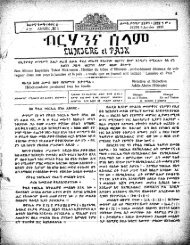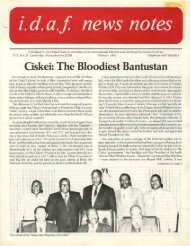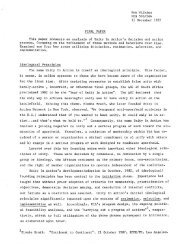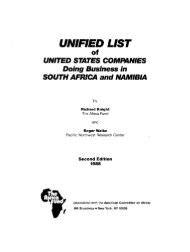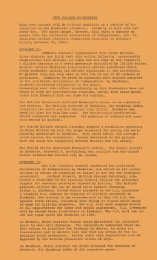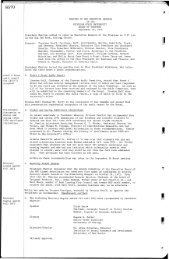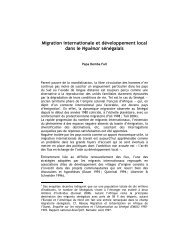Appendix - Matrix - Michigan State University
Appendix - Matrix - Michigan State University
Appendix - Matrix - Michigan State University
You also want an ePaper? Increase the reach of your titles
YUMPU automatically turns print PDFs into web optimized ePapers that Google loves.
monster, a mere opportunist. He had shaken them all<br />
with his call for justice for the black athlete.<br />
The Olympic Project for Human Rights (the Olympic<br />
boycott) was directed against the 1968 Olympics in<br />
Mexico City. Edwards' primary move, however, was<br />
against all athletics. For years black people and whites<br />
have lived under the delusion that athletics is one sure<br />
road to racial equality in this country. It is Edwards'<br />
contention that in many ways the lot of black athletes<br />
is just as bad today as it was before Jackie Robinson<br />
integrated baseball in 1946. Edwards' charges and activities<br />
have led to national magazine articles on the<br />
plight of black athletes. The athletic departments of<br />
over a hundred colleges and universities have been<br />
shaken to their foundations. The fire has been started<br />
and the match was applied by Harry Edwards. For it<br />
all started at San Jose <strong>State</strong> College when black athletes<br />
rebelled against unspeakable housing conditions and<br />
vile discrimination.<br />
Edwards' promise to disrupt the San Jose <strong>State</strong><br />
<strong>University</strong> of Texas at EI Paso football game set off a<br />
shock wave throughout the nation. It upset the city of<br />
San Jose so much that President Robert D. Clark of San<br />
Jose <strong>State</strong> cancelled the game, against the wishes (or<br />
orders) of Governor Ronald Reagan and Superintendent<br />
of Schools Max Rafferty. Reagan and Rafferty had<br />
said that they would turn out the militia before they<br />
would see the game cancelled. From this moment on,<br />
Edwards' theme was written. The desire, the motivation,<br />
all centered around one word-"justice"-justice for<br />
the black man; justice for the black athlete-BY ANY<br />
MEANS NECESSARY!<br />
The Olympic boycott movement was really not new.<br />
Political satirist-comedian Dick Gregory had proposed<br />
the idea before the 1960 Olympics, but people had<br />
merely laughed at him then. He made the same proposal<br />
again in 1964. At that time he did get a few people to<br />
Foreword· x<br />
go along to picket the Olympic trials in Los Angeles.<br />
But Harry Edwards moved the struggle out of a local,<br />
national context and made it an international issue.<br />
I often laugh to myself when I reflect over the fact that<br />
throughout the year 1968, Harry Edwards operated the<br />
entire project out of a camper. The publicity and the<br />
ability to carry out the proposed boycott took money.<br />
The funds came out of Edwards' own pocket and from<br />
those who believed in the justice of the project. If the<br />
donations had matched the amount of hate mail that<br />
Edwards, Tommie Smith, Lee Evans, and John Carlos<br />
received, Harry could have thrown away his camper<br />
and bought a bus. Smith, Evans, and Carlos could<br />
best be characterized as the "Three Musketeers" during<br />
this period in 1968. They are three unique individuals.<br />
Tommie Smith holds eleven world sprint<br />
records; Lee Evans is considered to be the greatest<br />
quarter-miler of our time; John Carlos is the listed world<br />
record holder in the 200 meters. Smith and Carlos long<br />
will be remembered by black people throughout the<br />
world for their victory-stand demonstration in Mexico<br />
City. Although Evans was unable to bring himself to<br />
demonstrate as dramatically and nobly as Smith and<br />
Carlos, he did endure the hardships and the emotional<br />
strain connected with the boycott for some nine months<br />
prior to the games.<br />
Edwards' approaCh in this book will be enlightening<br />
even to his severest critics. He highlights the political,<br />
economic, and social implications of the Olympic boycott<br />
movement and the revolt of the black athlete and<br />
stresses. the need for black athletes to think politically<br />
regarding the plight of black people in general rather<br />
than to view athletics as an opportunity to fulfill their<br />
own personal and selfish goals. Edwards is a revolutionist,<br />
a modern Nat Turner, Malcolm X, and Paul Robeson<br />
all rolled into one. A semi-high school dropout,<br />
Edwards found his destiny late in his academic career-<br />
_._--------_....------------<br />
Foreword • xi



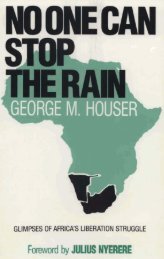
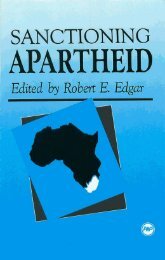

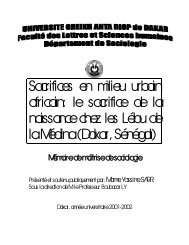
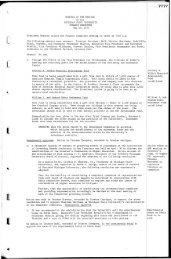
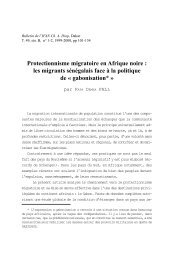
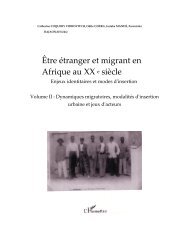
![Synthèse [6] DEFALL..INSTRAW.pdf - Matrix](https://img.yumpu.com/17880734/1/190x245/synthese-6-defallinstrawpdf-matrix.jpg?quality=85)
